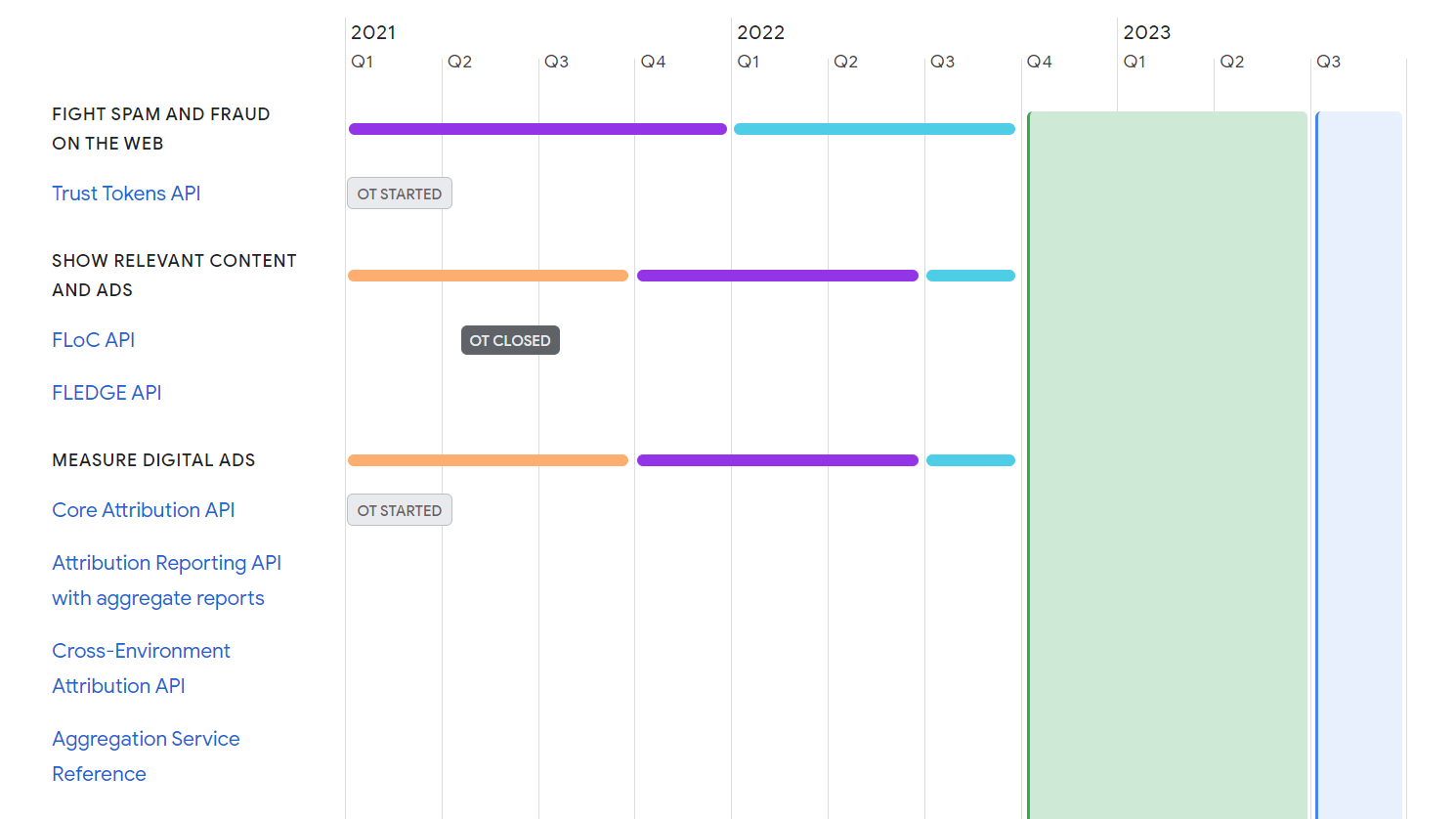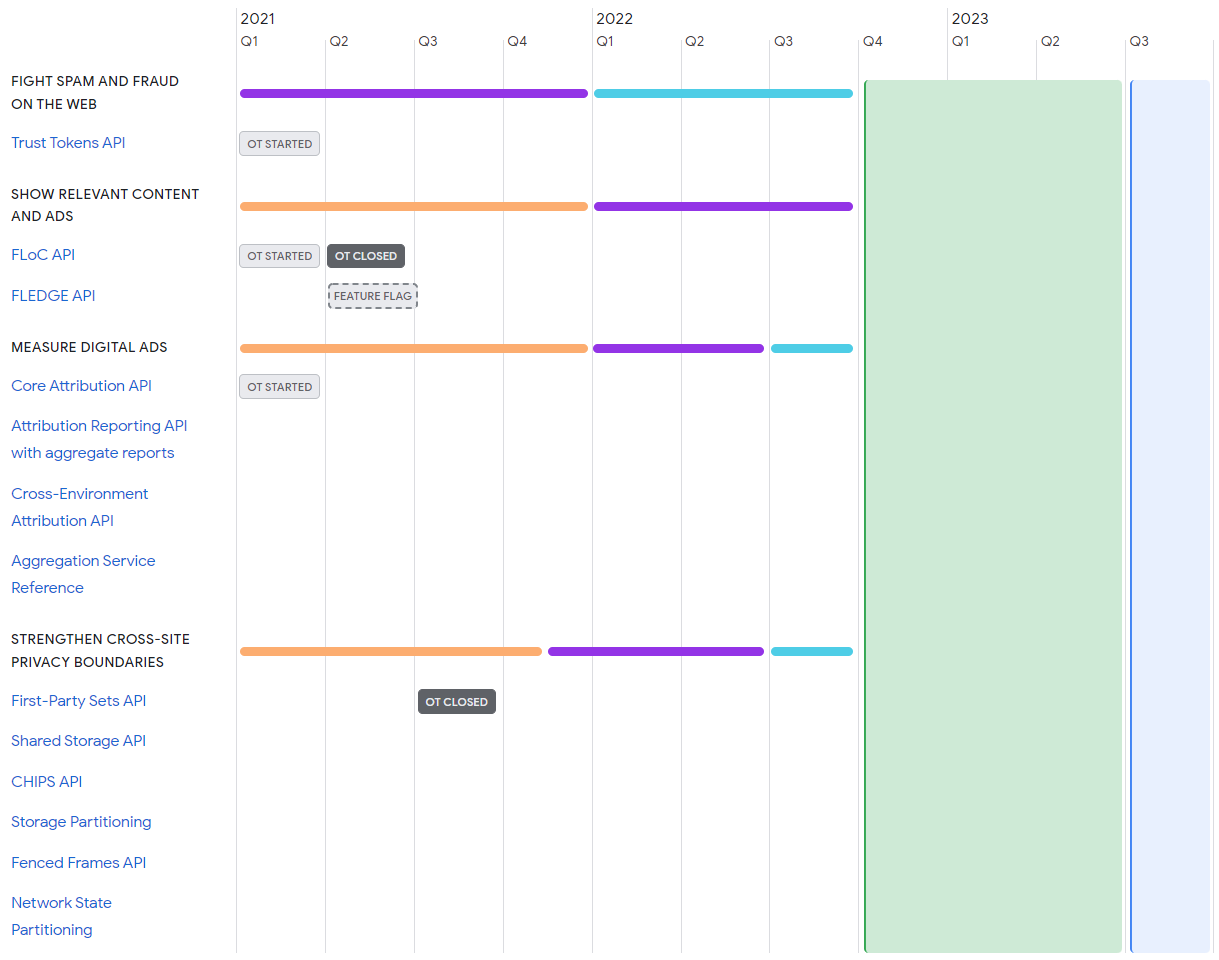Many of Chrome's biggest competitors have already FLoC-blocked.
Update, Sept 30 (6:30 p.m. ET): Google updates the timeline
Update, July 26 (5:55 p.m. ET): Google posts detailed timeline of Privacy Sandbox initiatives
What you need to know
- Google is delaying phasing out third-party cookies on Chrome to 2023.
- The company says it is working with authorities to "get this right."
- It is subject to engagement with the United Kingdom's Competition and Markets Authority.
Google is delaying its plans to phase out third-party cookies in the Chrome browser until 2023, a year later than when it was originally going to happen, Google said in a blog post.
The tech giant said that while there is "considerable progress" with the initiative the company requires more time "across the ecosystem to get this right."
This initiative is part of the company's bundled project called Privacy Sandbox, which includes several proposals for Chrome and the web.
"The Privacy Sandbox initiative aims to create web technologies that both protect people's privacy online and give companies and developers the tools to build thriving digital businesses to keep the web open and accessible to everyone, now and for the future," Google wrote. "In order to do this, we need to move at a responsible pace."
It added that the goal is to have key technologies deployed by late 2022 for the developer community to start adopting them, and subject to engagement with the United Kingdom's Competition and Markets Authority, "Chrome could then phase out third party cookies over a three month period, starting mid-2023 and ending in late 2023."
Specifically, phasing out third-party cookies falls under what the company calls "Federated Learning of Cohorts" technology or FLoC. Google touts the initiative as a way to help preserve user privacy while giving advertisers similar results to third-party cookies. Instead of using individual IDs to identify and track users, FLoC intends to group users together based on browsing habits. According to Google, "individual users are indistinguishable within a single cohort." Third-party cookies are used for everything including audience data collection and segmentation to ad targeting and personalization to granular attribution measurement.
Many in the industry are not fully convinced that the technology is the best option to replace cookies. Several companies behind some of the best Android browsers have already blocked the new technology and have since reaffirmed their positions. Amazon, for example, recently blocked FLoC on its brand webpages, making it more difficult for Google to build out these tracking cohorts on some of the internet's biggest destinations.
When Google initially announced the plan to do so, an analyst blog post from Forrester said that Google is "trying to burnish its reputation as privacy-friendly in the face of much competition from other browsers."
"Its demand-side platform, ad exchange, and other demand- and supply-side tools will take a hit, as those platforms will be more limited in which marketer and publisher use cases they can enable. But for Google, the hit is worth the upside, where Google is thinking about the company's long-term sustainability and business growth," the blog post said.
Other browsers like Apple's Safari and Firefox have already implemented a type of block against third-party tracking cookies.
Update, Sept 30 (6:30 p.m. ET) ― Google delays FLoC testing as discussions continue
Google has issued an update on its Privacy Sandbox initiative. After posting a detailed timeline in July, the company has posted an update with some changes to its schedule.
Most notably, the controversial FLoC proposal is being delayed, with testing not expected to start until Q1 2021.
Following a short Origin Trial period earlier this year, Google staff developer relations engineer, Rowan Merewood, says that more time is needed to discuss the proposal.
Given the active ecosystem feedback, the Discussion phase for the Show relevant content and ads use case is going to extend through Q4 2021 as we work on changes to the proposals.
The current expectation is that both FLoC and FLEDGE will be available for wider testing by sometime in Q1 2022.
Given the flak that FLoC has received, it's no surprise that Google has delayed testing as the company figures out how to allay lawmakers' concerns.
Update, July 26 (5:55 p.m. ET) ― Timeline shows planned transition
Following its announcement that the Privacy Sandbox initiative was being delayed, Google has posted a detailed timeline of when it expects it launch its various proposals, including the much-maligned FLoC.
The timeline groups the Privacy Sandbox proposals into four categories and shows the stages they expect the proposals to be within the next couple of years. According to the timeline, Google targets most of them to be "ready for adoption" by Q3 2022, with two transition periods spanning roughly a year until the end of Q3 2023.
 Part of the timeline shared on the Privacy Sandbox website.
Part of the timeline shared on the Privacy Sandbox website.
Google expects to update this timeline regularly as things progress, which makes sense given Google's current challenges in adopting these proposals.
Source: androidcentral

